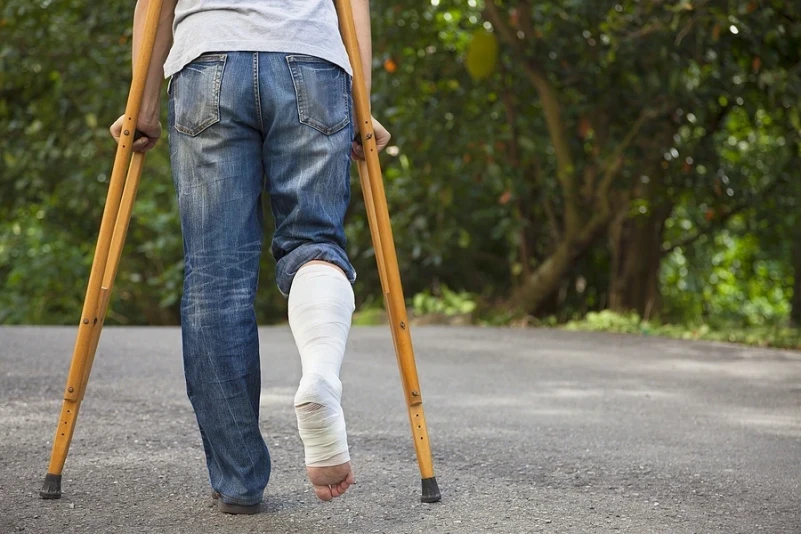How to Prove Negligence in a Premises Liability Case in South Carolina

Premises liability cases in South Carolina involve injuries that occur on someone else’s property due to unsafe conditions. Slip and falls, trip hazards, wet floors, or poorly maintained structures can lead to serious accidents. Proving negligence is essential for recovering compensation in these cases. Understanding how to establish fault, gather evidence, and document damages can help victims navigate the legal process and protect their rights.
Understanding Premises Liability
Premises liability is a legal concept that holds property owners responsible for maintaining safe conditions for visitors. The law recognizes different categories of visitors, such as invitees, licensees, and trespassers, which influence the owner’s duty of care. Businesses and public properties owe the highest duty to invitees, which includes customers, clients, and patrons. Property owners must take reasonable steps to prevent hazards or warn visitors of known dangers. When an injury occurs because this duty is breached, the property owner may be liable.
Elements Required to Prove Negligence
To succeed in a premises liability case, certain elements must be established. First, the property owner owed a duty of care to the injured party. Second, the owner breached that duty by failing to maintain safe conditions, warn of dangers, or address hazards in a timely manner. Third, the breach directly caused the injury. Fourth, the injury resulted in measurable damages, such as medical expenses, lost income, or pain and suffering. Each element must be supported with evidence to build a strong case.
Documenting the Hazard and Accident Scene
Collecting evidence at the scene is critical. Photographs and videos showing the hazardous condition, the surrounding area, and any contributing factors provide clear visual documentation. Measurements of the hazard, such as the height of a step or the size of a pothole, can also be helpful. Additionally, noting the time, lighting, weather, and any warning signs—or lack thereof—offers context for the accident. Immediate documentation ensures accuracy before conditions change or evidence is lost.
Gathering Witness Statements
Eyewitness testimony can play a crucial role in premises liability cases. Witnesses can confirm how the accident occurred, the visibility of hazards, and whether the property owner had knowledge of dangerous conditions. Collecting names, phone numbers, and written statements strengthens the case. Witness accounts can also counter disputes from property owners or insurance companies, providing independent verification of the circumstances surrounding the injury.
Preserving Medical Records and Treatment Documentation
Medical records are essential for proving the extent and impact of injuries. Documentation should include initial emergency care, hospital visits, ongoing treatments, physical therapy, and prescription information. Keeping detailed records of pain levels, functional limitations, and recovery progress supports claims for compensation. Medical documentation also establishes a direct connection between the property hazard and the resulting injuries.
Collecting Maintenance and Inspection Records
In premises liability cases, maintenance logs, inspection reports, and repair records from the property owner can reveal whether the hazard was known or neglected. Evidence showing delayed repairs, ignored safety complaints, or infrequent inspections can demonstrate negligence. Attorneys often request these records through the discovery process to establish that the property owner failed to meet their duty of care.
Understanding Comparative Negligence in South Carolina
South Carolina follows a modified comparative negligence rule. This means that if the injured party shares some responsibility for the accident, compensation may be reduced proportionally. For instance, if a victim is found to be 20 percent at fault, their total damages award will be reduced by that percentage. Understanding this system helps victims and attorneys evaluate the strength of the case and anticipate potential adjustments in compensation.
Notifying the Property Owner and Insurance Companies
Promptly reporting the accident to the property owner or their insurance company is important. Many businesses have procedures for documenting incidents, and timely notification ensures that an official record exists. However, it is crucial to communicate carefully and avoid statements that could be interpreted as an admission of fault. Legal guidance is recommended when interacting with insurance representatives to protect your rights.
The Role of Expert Witnesses
In complex cases, expert testimony may be necessary. Safety experts, engineers, or accident reconstruction specialists can analyze the hazard, explain how it contributed to the injury, and testify about industry standards. Medical experts may provide insight into the severity of injuries and long-term impacts. Expert input can significantly strengthen a case by providing objective analysis and professional credibility.
Keeping Detailed Personal Records
Maintaining a personal log of medical treatments, daily limitations, expenses, and communications related to the accident is highly beneficial. Notes about how injuries affect work, household tasks, and recreational activities illustrate the broader impact of the accident. Detailed personal records complement medical documentation and support claims for non-economic damages like pain and suffering.
Consulting a Personal Injury Attorney
Premises liability cases can be complex, involving multiple parties, insurance disputes, and detailed evidence requirements. An experienced personal injury attorney in South Carolina can evaluate the case, gather necessary evidence, handle communications with insurers, and represent the injured party in court if needed. Legal guidance helps ensure that negligence is properly established and that victims receive fair compensation for medical bills, lost wages, property damage, and other losses.
Conclusion
Proving negligence in a South Carolina premises liability case requires careful documentation, thorough evidence collection, and a clear understanding of the property owner’s duty of care. Establishing liability involves showing that the owner breached that duty, directly causing injuries that resulted in tangible damages. Photographs, witness statements, medical records, maintenance logs, and expert testimony all play vital roles in building a strong claim. Consulting an experienced personal injury attorney ensures that victims can navigate the legal process effectively, protect their rights, and pursue fair compensation after a premises-related accident.
